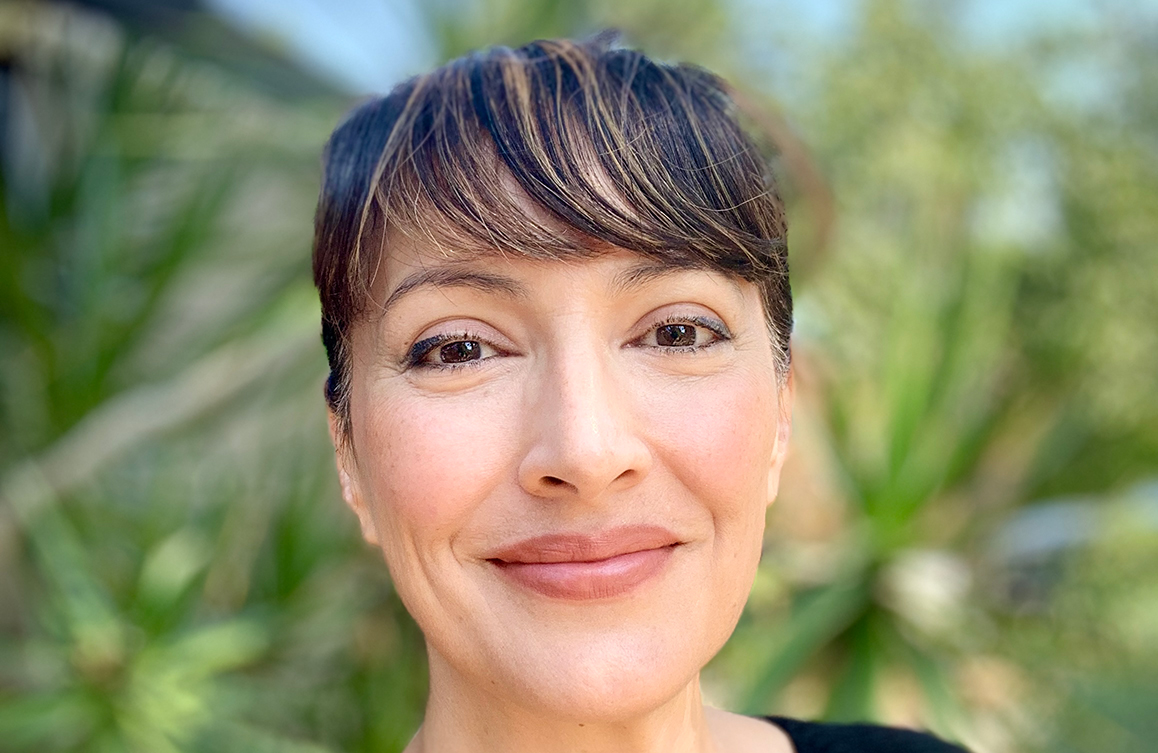Pando Days Update: Gina Valona, Otis
Pando’s Rich Binnel reached out to Gina Valona, a professor at Otis College of Art and Design, about her involvement in Pando Days 2019/20, and the project she developed for the program to make interacting with LA in a green way both easy and fun.
Read on to learn about what she’s teaching and doing that matters to them, to Pando, to Los Angeles, and to the world.
What we found is predictably astonishing, and inspiring.
Welcome.
Why sustainability? Because the climate-change clock is ticking.
Since 2017, Gina Valona has taught in Otis College Creative Action, a program that introduces students to social and environmental issues using human-centered design, socially-engaged art practices, and multidisciplinary collaboration to develop innovative solutions to topics including sustainability.
She developed her “Art, Systems, and Sustainability” course due to her concern about the climate crisis. It’s a systems-thinking course that challenges students to become aware of the complex web of forces related to environmental justice at the intersection of cultural, political and economic issues.
How did you become involved with Pando Days?
“I was introduced to Pando by Adam Eeuwens, the 2019/20 Pando Days producer who pitched me the concept and invited me to be involved. I was excited to collaborate, and we created a partnership that blends the program into both my practice and a course at Otis College.
“A partnership at this level challenges both me to work in step with contemporaries in the fields of art and design and with non-profits and government agencies. I am very interested in the concept of artist as creative strategist and in the past few years, I have turned my practice towards working on more civically engaged projects .
Tell me more about your class.
“On the educational side, the class is practical teaching students a framework and process to address complex projects while learning how to work in partnership with organizations like Pando and the OurCountyLA Sustainability Plan. Addressing specific RFP design challenges aligned with the goals, strategies and actions of the plan, students are faced with working on a high-stakes, collaborative project. It is a unique learning experience where they create alongside professionals in the field co-developing projects that have potential for real-world implementation.
“The challenge at the junior level is the content is complex involving layers of comprehension and engagement that must occur before project ideation begins. After weeks of research and analysis, students are then put into multidisciplinary teams to bring their best concepts forward for evaluation so we can determine which solutions might work best in addressing the design challenge.
“Because the work is emergent and we are learning and experimenting along the way, considering perspectives from several stakeholders, there’s much that cannot be pre-planned. It is about discovery, not a strict set of assignments. Empathy and patience are required while keeping them inspired when they get overwhelmed .
“By the end of the semester, students are really taking ownership of the work and consistently producing projects they never imagined possible at the onset. My goal is to encourage and stretch them beyond their perceived capabilities so that the work they produce can serve as a valuable portfolio piece upon graduation.
“For the first Pando Days, which came in 2019/20, the class generated the idea of using the OurCountyLA plan to create an eco-justice constellation—in short, a green map that stakeholders could use to visualize and connect disparate parts, people and actions—working in various capacities towards creating a sustainable LA County.
“One of the challenges was: How to make the Plan visible and accessible to the LA community at large?
“We used the first letters of the words Transparent, Inclusive, and Accountable to create the acronym, TIA, which in Spanish translates to aunt. We loved the idea of using the concept of a Tía, a figure of trust who mentors, engages, collaborates, and learns along with us about the plan. Thus, the tiaproject.org was born.”
What is the importance of The Tía Project?
“It’s an ongoing collaborative project for community partners and students to learn, create and build upon each other’s work.
“The Tia Project will grow over several years, and the framework allows me to ground in my own art + public practice while combining it with my academic work.
“The work is intense and deep and the thinking it requires goes way beyond the scope of the classroom because it’s a part of my life, for our partners, our community, and the L.A. Sustainability Office itself.
“Project proposals range from an OurCountyLA Mobile App to site specific pop-up buildings to community-engagement workshops along with strategies focused on the goals of the plan.”
What’s your continuing involvement with Pando?
“My involvement connects us all to a wider network and sets up a healthy competition and sharing of ideas amongst colleges, colleagues, peers and students to do their best work and push innovative ideas.
“There’s been a shift in the last few years in which a philosophical alignment between government, big business, technology, artist/designers and community has started to integrate rather than divide in silos.
“I think this way of working creates opportunities for us to make a collective impact. We need each other. We need to work together. And we are in a dire situation when it comes to the climate crisis because the clock is ticking—faster and faster.
“People can reach out to me via tiaproject.org.”
This is one of a continuing series of conversations with Southern California professors involved in Pando Days, our flagship program that brings together Southern California colleges and universities to implement LA County’s sustainability goals.
